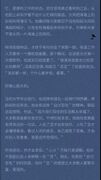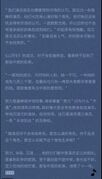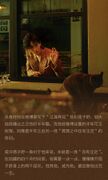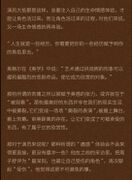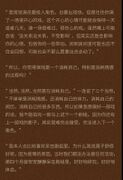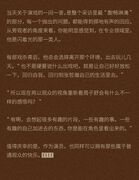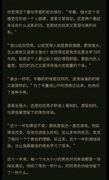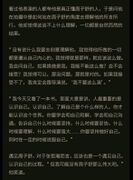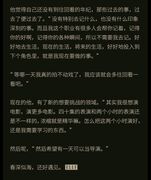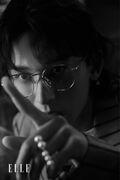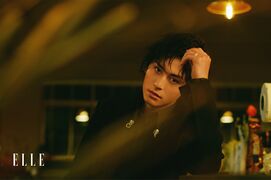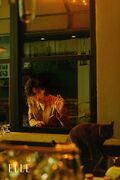Elle magazine interview
Zhang Zhehan did an interview for Elle magazine published in their April 8, 2021 issue.
Scans of interview
English translation[1]
On the day of the photoshoot, we encountered a rare windy day at Beihai. The weather forecast was for rain, which made everyone a bit discouraged. “Can we still do the photoshoot by the seaside?”, “do we need to change the location?” Everyone was worried, but fortunately in the end the rain never came, although there was a steep drop in temperature and screaming winds.
While on the road to the shoot location, Zhang Zhehan recorded the sound of the wind from outside of his window. In order to make it before the sun completely set, he only had one hour after filming to rush back to his hotel, eat a meal, change his clothing, and put on makeup. And now, after doing all of that, he also used his remaining free time to chat with his long-waiting fans in the drama’s interactive area.
Being busy is to be expected. However, when you see him on location, you cannot see any traces of being busy on his face. The wind blew the gravel from the beach everywhere. Between shots, no one could help but complain about the cold wind and the sand all over our faces. Only Zhang Zhehan looked relaxed, as if he did not come from the same beach as everyone else.
It was only after changing locations to a coffee shop did we have time to sit down and have a chat. He asked a staff member to get a cushion for his back. It was the first time in the entire day that it became apparent that he was actually very tired. “Being an actor must be quite difficult and tiring.” Before I could finish the sentence, he already said he disagreed with my statement. “In fact, it is all the same. Every job is difficult and tiring.”
He seems to have a big heart.
For his university graduation trip, he chose to ride to Tibet with his friends. According to his mother, he always has this spirit of “looking for suffering”. While talking about this trip, he said, “Our lives have become very fortunate. Most families do not need to worry about basic necessities, and we no longer go through many hardships. I very admire what teacher Wang Lei once said: ‘Only after suffering can a person develop faith, only after suffering can a person understand kindness. Only after seeing the sufferings of the world, after experiencing suffering, can a person have kindness towards others.’ This is also my thinking.”
Only after listening to him speak will you realize that saying he is “big hearted” is perhaps a misunderstanding. It is not that he is better at reducing the feeling of “suffering”, instead, during those times when he is “looking for suffering”, his understanding of “suffering” is in fact more fulsome and intense than most other people.
He has a very sensitive side, through which he feels, understands, and hides his “suffering”. As a result, his experience of and feelings towards suffering is something that others have difficulty perceiving.
“When we go through hardships, we only see the suffering itself, and do not understand that the act of suffering is reminding us of some things and teaching us other things.” This is his understanding of being mature – the ability to see the many sides of things.
“Bruce Almighty”, “The Pursuit of Happiness”, and “The Bucket List” are movies that he likes very much. “There is a line in Bruce Almighty that had a deep impact on me. In that movie, there is a hypothetical God who said, ‘do you really hope that God will give you happiness?’. Perhaps everyone’s belief in what is happiness is not the same, but in the movie, the main character had to reach the end before suddenly coming to the truth: in fact, God really had given him happiness, but what was given wasn’t “so-called” happiness but rather the ability to achieve happiness…” He earnestly shared his impression of the movie while propping up his chin with his thumb, with eyes looking slightly downwards.
He added, “This is actually about changing your perspective on how to see problems”, just like how he wrote previously, “maturing is seeing things that you could not see before.”
Maybe only when one has settled for a long enough period of time can one remain calm in changing tides, and hold onto oneself despite the quicksand under one’s feet. When faced with the problem of popularity, he is more at ease than one would expect.
“Popularity is obviously important to an actor. I think they complement each other. Having greater popularity and the attention of more people, and being able to carry more on your shoulders, first proves that you have the ability, and second proves you have received the acknowledgment of the market.”
“As actors, we need to be acknowledged by the market. I have seen some excellent actors who work hard to portray each role, but because they have not had the opportunity to be acknowledged by the market, they continue to be unknown to the public. That is why they naturally will not receive opportunities to act in great roles.” It sounds cruel, but it is an undeniable fact. “If you do not have popularity, good scripts will not find you.”
For Zhang Zhehan, the success of Word of Honor is like winning the lottery.
“The success of a drama depends on timing, location, and social conditions all being favorable at the same time. There are hundreds to thousands of dramas filmed each year, but in the end only one or two is loved by everyone. That is why it is a bit like winning the lottery.”
Working hard is common. He thinks it is a bit unreasonable to ask why one is not appreciated if one works hard. It is like how he feels when people complement him for being an experiential actor, when he is complimented for his immersive style of acting. He feels this is just making sense of acting, it is what actors are supposed to do.
“As an actor, if you don’t experience the character, how can you properly portray the character? If you don’t get into the character, then how can you give life to this character?”
Hard work, experience, immersion – he sees these elements as part of the definition of being an actor, the requirements for winning the lottery. As for whether one is able to win the prize in the end, no one can say for sure. At a minimum in his own experience, he has waited 11 years for that winning lottery ticket.
After filming ended, he wrote on his Weibo “Jianghu, goodbye” to say goodbye to Zhou Zishu. When the final episode aired, it was exactly half a year from that post. As well, his Weibo was set to posts being visible for 6 months. It was as if there was another pre-destined farewell a half year later.
Maybe for him, the character of Zhou Zishu was really predestined to be his. During the four months of filming, he needed to slowly, little by little, brush away the two thousand layers of dust on Zhou Zishu, find him, become him, and in the end live his entire life for him.
Generally speaking, actors must infuse their characters with their own emotions and experience in order to make the character come to life. And in the process of making a character come to life, actors are required to feel and experience life again.
“Life is a series of experiences. You need to take those experiences and give it to your character.”
Hegel said in “Aesthetics”: “Art by means of an image can mitigate the cruelest tragic destiny, and make it become an object of appreciation.”
Perhaps the reason why so-called sufferings are endowed with aesthetic tension is because they are “being viewed”. The most beautiful things are not being destroyed in real life, rather they have become a “performance of being destroyed”, they are moved to the stage and onto the screen. The existence of an aesthetic distance has made suffering became something that can be endured, and something that can be appreciated.
What about for the actor? That so-called “sense of pain”, will it be experienced more directly, without buffer? In his previous interview, he assessed Zhou Zishu as “a profound character that has hurt him the most”. When we speak again about “being hurt”, he believes that it is unavoidable.
“I have often said actors have to throw oneself into the role, but yet must also get out of character quickly. But every time you act in a very happy drama, this happy feeling may only stay with you for one or a few days. When you act in a tragedy, even though you might say ‘it doesn’t matter it doesn’t matter, there is no impact’, but in reality it will impact on your mood, including some of your actions. When you go back to your room, you might not be able to help but think back, and you may not wish to go out and socialize with others.”
“So, do you think that acting is a process that depletes your energy, and in particular depletes your emotions?”
“Of course, of course, of course, it will deplete your energy.”, he said “of course” three times consecutively. “Not only will it deplete your emotions, but it will also deplete your physical strength, deplete your experience, deplete many things about yourself. That is why if I want to act well in a drama, I cannot go to the next drama immediately after finishing the first. Because you continue to have the previous drama’s shadow on you, making it actually extremely difficult to accept, and difficult to fully enter the next role.
“I personally prefer to stay with the filming crew. Why do I say Zhou Zishu is great? It’s because during the pandemic, we could not do other activities. During those four months, I quietly and peacefully stayed with the filming crew. I was able to carefully consider and experience the character.”
That day, the question and answer about acting was the most carefree part of the entire interview. To every question that was tossed out, I received an eloquent response. From a bystander’s perspective, one can obviously feel that in this specialized area, he is the type of person who sparkles with light.
After each drama finishes filming, he will choose to vacation for a few days and leave that environment. “It’s not that I am insisting on disengaging from the drama, but rather it is to allow me to relax a bit, to return to myself, to return to the life of Zhang Zhehan.”
“So now looking at Zhou Zishu from the perspective of an audience member, do you have any different sentiments?”
“Yes, I will think about some amusing parts, some amusing things that happened. You can see some of the interesting things that I added into this character.”
What is worth celebrating is that an actor can have the same happiness as an ordinary member of the audience.
In the few minutes of conversation, the phrase he used the most was “gentle yet strong”.
“I particularly like that netizens describe Zhou Zishu as being gentle yet strong.”
“Right now, the quality that I admire the most is being gentle yet strong.”
“Right now, I want to be like A-Xu, someone who is gentle yet strong.”
“I would like to be more like Ah-Xu, a bit more gentle.”
He feels that this seemingly contradictory combination is ingenious, “See, the word ‘strength’ seems to describe a person who is very tough, while the word “gentle” describes a person who is very soft. On the surface, it seems that these two words do not have any relationship. However, when you put it together, there is a perfect relationship.”
“I did not use to think this way. Before, I thought that a person should be unyielding and powerful. How can a person be both gentle and strong? I believe that this is what I need to learn right now; to be a person who is able to interact easily with others, able to care for others, and yet at the same time be a strong and capable individual.”
“Be like water, I guess; when it is calm it is a certain way, when the waves are choppy it is another way.” He used all sorts of hand gestures to fully describe what he wished to say from his heart.
“Gentle yet strong”, this is what he saw and felt from Zhou Zishu. It is also the experience learned from the character that he most wishes to preserve.
“If we talk about what has not changed in these 11 years, it is that I am still acting. But if we talk about what has changed, the change has been significant. My years of experience has turned into my understanding of each role. In other words, my 11 years of acting experience has allowed me to learn a lot from my roles.”
In these 11 years, every large and small role was a mutual encounter. He gave his characters something of himself, and at the same time his characters also left something of themselves for him.
Those who have seen him act has praised him for being a person who truly understands Zhou Zishu. When asked how he is able to stand in Zhou Zishu’s place and understand everything he said and did, he said that he does not believe it is about understanding, but rather that everything flowed naturally.
“I did not deliberately go out of my way to understand him. I believe that everything he did comes from his heart; I will do it if I feel that it is right. I will ask myself, if it is me, can I do this? Can I accept it? If I feel that I can, then there is no problem, then it is right. If I feel that I cannot accept it, I would definitely speak to the director and say, ‘I do not want to act it this way.’”
“Today, I read another book. The main idea in the book is that a person must know himself. Only when you know yourself and understand who you are as a person can you know this world. You have to learn how to be reconciled to yourself, learn how to communicate with yourself, tell yourself when it is necessary to persevere, when it is necessary to compromise, when it is necessary to understand, when it is necessary to be strong…You have to insist on being true to yourself, but at certain times also persuade yourself.”
Encountering Zhou Zishu, for Zhang Zhehan, was also a process of meeting himself and understanding himself. “But I might not be as mighty as Zhou Zishu, right?” he said while laughing.
He feels that he is not yet old enough to look back. Those events in the past, what has past is past. “There is nothing to deliberately remember, nothing that is profoundly impressive. Moreover, in my work, there are many people who will help you remember. They will remember the things you did well, remember your every moment, that is why you do not need to remember for yourself. Living my life well, my present life, my future life, devoting myself to my next role, those are my tasks at this moment.”
“When I reach the day where I really cannot act, I might look back more at the past.”
Right now, there is a new area that he would like to challenge himself with. “Actually, I really would like to act in movies, act in more movies. Acting in a 40-episode series is very different from a two-hour movie. Condensing the time requires getting at the essence. How to act well in these two hours is something that I must still learn.”
And then afterwards, “Afterwards, I would like to one day be a director.”
The whole earth is filled with the spring light. It is fortunate that we met.

